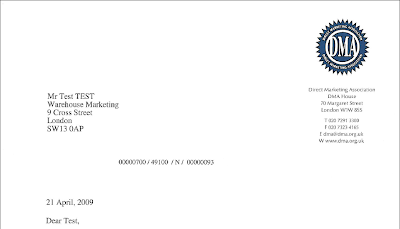
This is not meant to name and shame; it is meant to commiserate. It is also meant as a reminder to us all to carefully check every aspect of a piece at least TWICE before hitting the send button.
The Email Practice is a place where anyone interested (or appalled) by email marketing can share their thoughts or climb up on their soap box and have a go. Better to rant here than on The Tube.

"I love email marketing stats, in particular european and/or UK specific stats - which can be pretty thin on the ground. If you are a UK marketer, please consider participating in the 2009 Annual National Client Email Marketing Report so the results will reflect one of the most up to date resources for UK email marketing research. (Survey link)
About: The National Client Email Marketing Survey is an initiative undertaken by the DMA UK’s Email Marketing Council. It’s designed to complement the National Email Benchmarking Report, which surveys the Email Service Providers (ESPs). The Client Email Marketing Survey asks client marketers to provide their answers to a mixture of response rate data, as well as attitudinal questions. The reports are produced on a quarterly basis. (Executive brief for 2006, Access to all past reports - free for members, fee for non-members.)
Survey guidelines: Where a % is asked for, please enter numeric values only. If you do not know the answer, please leave blank.
Taking the Survey: Participants will receive a complimentary copy of the survey results; insert your email address in the first box to receive the report when it is issued. (Survey link) Survey closes 29 January."